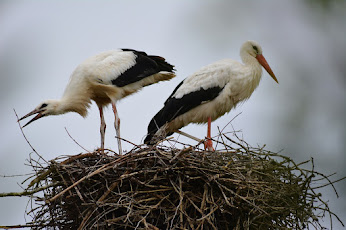Bear scratch rewilding could bring our woodpeckers back!
I’ve watched with sadness as the delightful Lesser Spotted Woodpecker - the smallest member of the woodpecker family in the UK at roughly the size of a sparrow – has declined from once common garden bird to total disappearance from much of our countryside. Its demise is likely a result of many factors, but could it be that a lack of brown bears (exterminated from the UK over 1,000 years ago) is one of them! If so, how can we replicate some bear antics by rewilding gardening and help our woodpeckers back?
Today I’d like to reference the excellent study by Ewa Zyśk-Gorczyńska and colleagues at the University of Zielona Góra, Poland, published in 2014. The study analyzed 278 wounds in silver firs (Abies alba) of different age classes from bears that damage trees through foraging and rubbing. Impressively, 43% of damaged areas had holes made by wood-boring insects and 33% had signs of woodpecker feeding.
Interestingly, the oldest wound age class (greater than 5 years old) was associated with a high probability of occurrence of insects and woodpeckers. Insect densities in fresh wounds (<1 year old) were significantly lower than in the older wounds. The results show that bear-made wounds provide breeding and feeding sites for both insects and birds.
Is it possible that the lack of bears has affected our woodpeckers over 1,000 years later? It could be a contributing factor! I’m speculating it would take roughly this time period for the last trees with bear damage to mature, age, and die.
For the rewilding gardener it is worth considering the importance of replicating tree damage or encouraging other species that also damage tree cambium such as deer. Their efforts will ensure a degree of dead or damaged wood which could remain as a weak point within the tree for hundreds of years. These weak points are likely to be exploited by wood burrowing insects and fungi, leading to crevices that become homes for bats and birds. All because a bear had a bit of a scratch!



Comments
Post a Comment